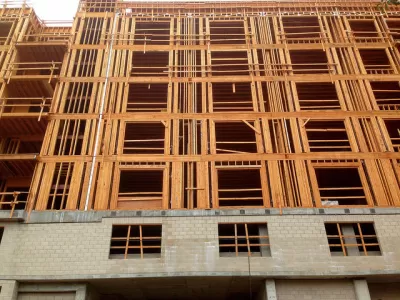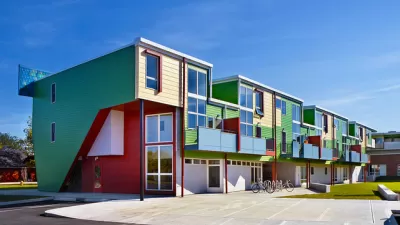SPUR's housing report, "What Will it Really Take to Create an Affordable Bay Area," found that it will take 2.2 million units in the next 50 years to avoid worsening housing inequality.

The San Francisco Bay Area Planning and Urban Research Association (SPUR) believes that housing is a fundamental human right. To supply housing that matches the rate of growth and support the needs of tenants and homeowners in California, housing needs to be produced constantly and efficiently. "In order to achieve this goal, we will need to build housing all the time, just as we build other critical infrastructure — that is, according to need and regardless of where we are in the economic cycle. Under our existing system, housing, particularly market-rate housing, requires rising rents (or falling construction costs) in order to be financially feasible," writes SPUR senior advisor Sarah Karlinsky.
Karlinsky continues, listing benefits of "smoothing out the housing delivery system"—the efficient use of public resources when constructing during an economic downturn, preventing job loss through the demand of construction labor, and the ability of new housing construction to aid the recovering economy. Suggesting six policy changes to address the current lack of housing, Karlinsky asserts that while addressing the housing crisis during a global pandemic and recession is difficult, it's the time to change policy to make housing affordable for everyone.
FULL STORY: One Idea for Economic Recovery: Treat Housing as Infrastructure

Planetizen Federal Action Tracker
A weekly monitor of how Trump’s orders and actions are impacting planners and planning in America.

Maui's Vacation Rental Debate Turns Ugly
Verbal attacks, misinformation campaigns and fistfights plague a high-stakes debate to convert thousands of vacation rentals into long-term housing.

Restaurant Patios Were a Pandemic Win — Why Were They so Hard to Keep?
Social distancing requirements and changes in travel patterns prompted cities to pilot new uses for street and sidewalk space. Then it got complicated.

In California Battle of Housing vs. Environment, Housing Just Won
A new state law significantly limits the power of CEQA, an environmental review law that served as a powerful tool for blocking new development.

Boulder Eliminates Parking Minimums Citywide
Officials estimate the cost of building a single underground parking space at up to $100,000.

Orange County, Florida Adopts Largest US “Sprawl Repair” Code
The ‘Orange Code’ seeks to rectify decades of sprawl-inducing, car-oriented development.
Urban Design for Planners 1: Software Tools
This six-course series explores essential urban design concepts using open source software and equips planners with the tools they need to participate fully in the urban design process.
Planning for Universal Design
Learn the tools for implementing Universal Design in planning regulations.
Heyer Gruel & Associates PA
JM Goldson LLC
Custer County Colorado
City of Camden Redevelopment Agency
City of Astoria
Transportation Research & Education Center (TREC) at Portland State University
Jefferson Parish Government
Camden Redevelopment Agency
City of Claremont





























